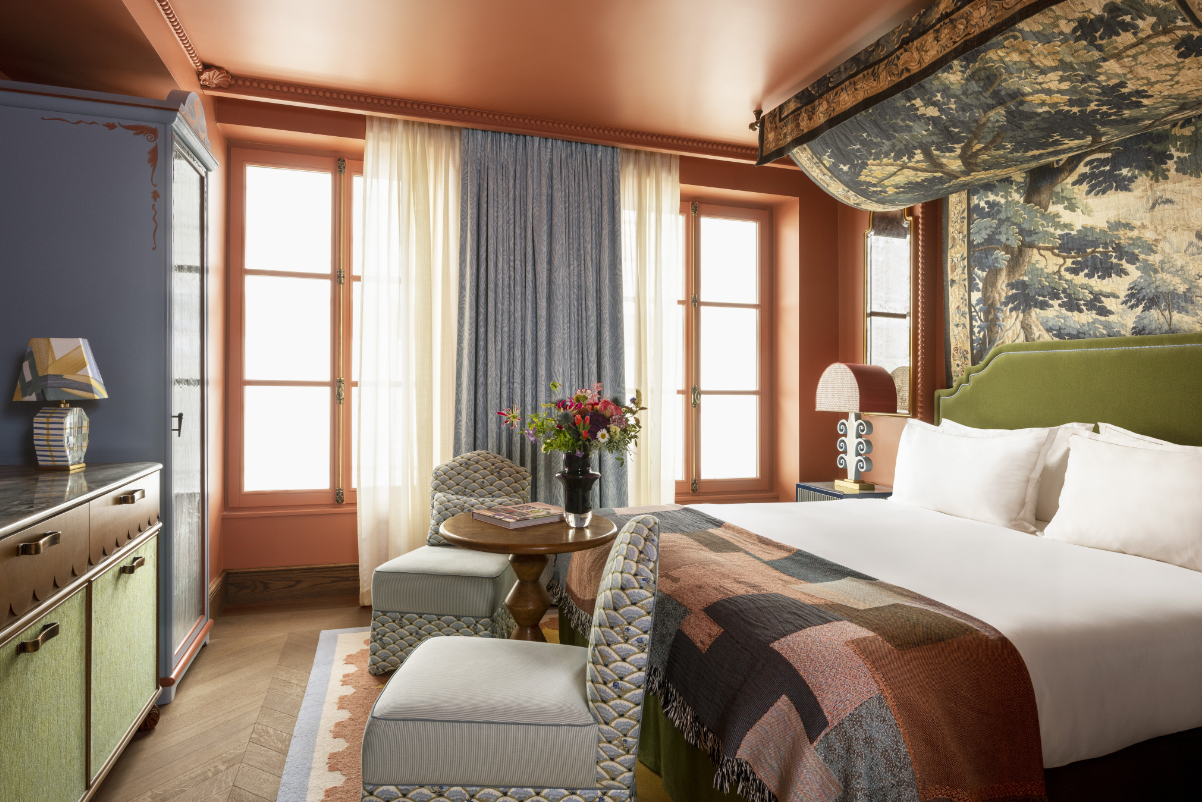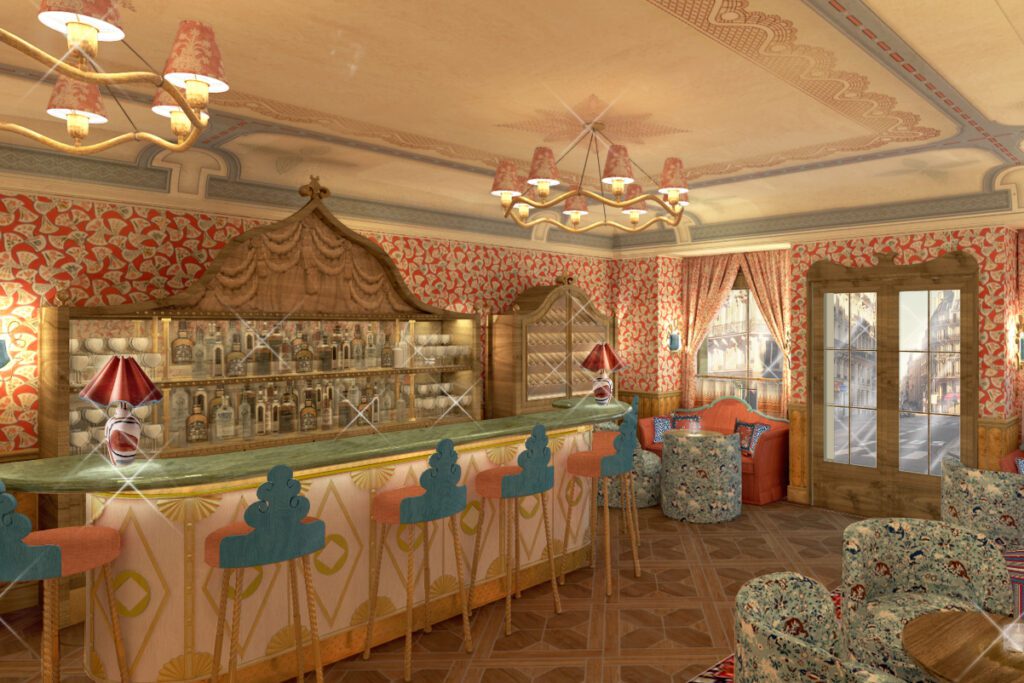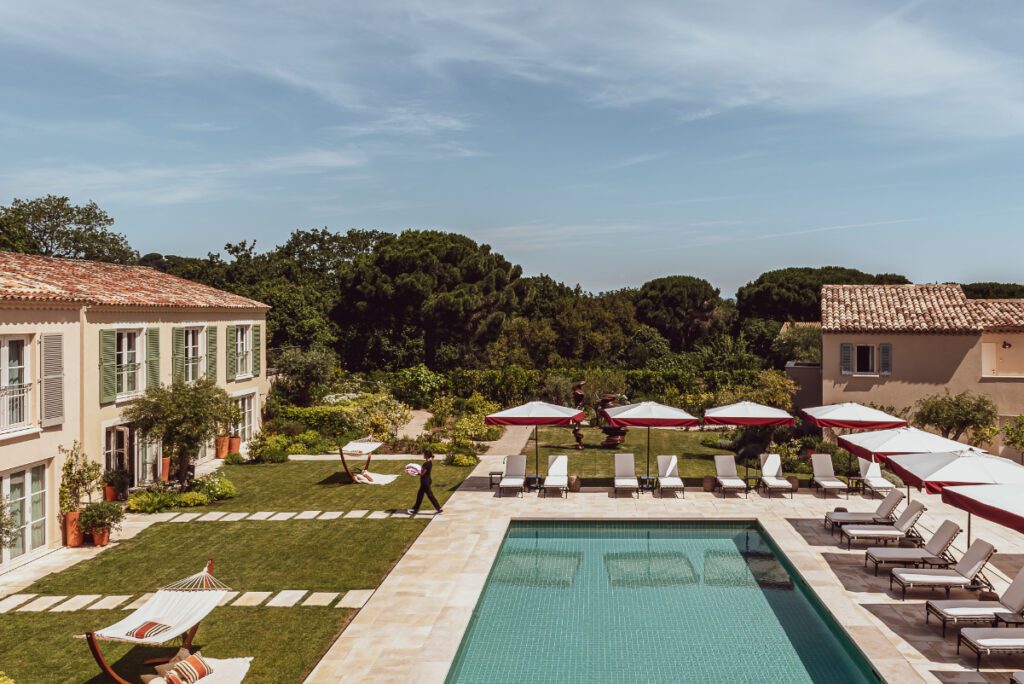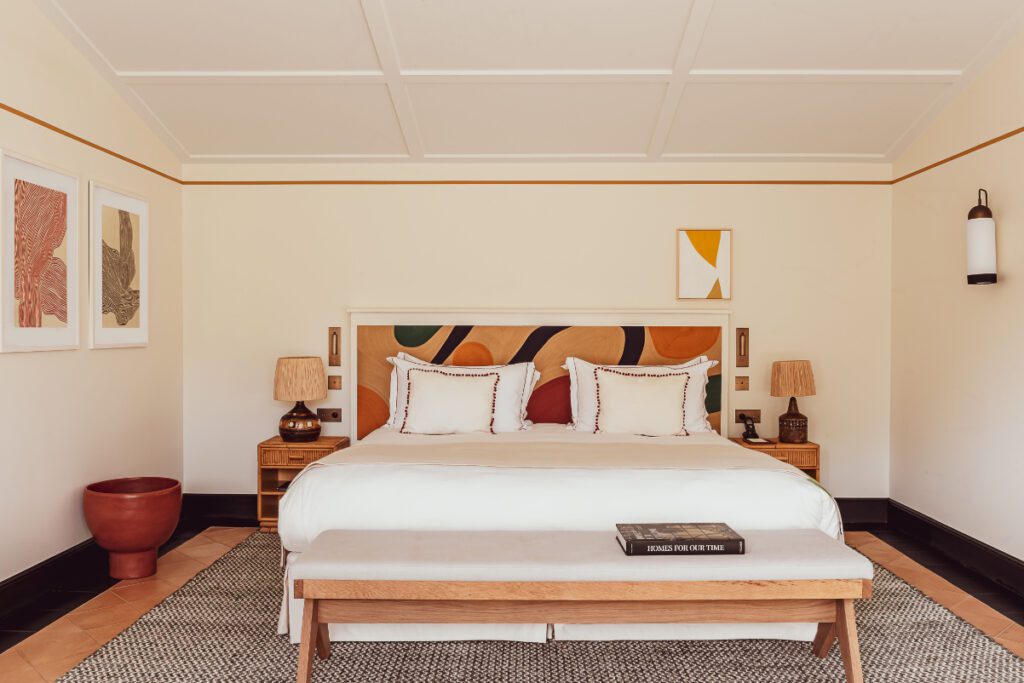Boutique Hotel Brand Maisons Pariente Braves the Paris Market

Skift Take
The idea behind the family-owned boutique hotel brand, Maisons Pariente, when it launched in 2019, was to create intimate luxury hotels — each in extraordinary places.
“Rather than build vacation homes, we designed homes that have everything to make you feel like you’re invited to a friend’s house,” said Kimberley Cohen, co-founder of Maisons Pariente.
A very chic friend that is.
After opening properties in Saint-Tropez, Tuscany, and at the ski resort of Méribel, the French brand is now taking a big chance on Paris.
Hotel Le Grand Mazarin, a 61-room property slated to open June 15, is in Paris’ vibrant Le Marais district. It's Maisons Pariente’s first hotel that’s not in a leisure destination and their first property that will be open year-round.
It’s also located in a city where critics abound.
“For Paris, it was a very big challenge for us,” said Cohen. "We are Parisian, so we know how Parisians are sometimes very difficult."
Achieving a "homey" vibe that’s unique to the brand while also appealing to city travelers and discerning locals will be the company’s biggest test yet. They hope their family’s obsession with details and personal take on hospitality wins over travelers and critics alike.

Fashion Roots
Maisons Pariente is a brand that has roots in fashion. So, it makes sense that Paris would be the next location on the company’s list.
Patrick Pariente, co-founder of the French fashion label Naf Naf, began investing in real estate while running the brand. When he sold Naf Naf in 2007, he turned his full attention to real estate. Pariente's two daughters, Cohen and Leslie Kouhana, eventually joined in.
Their first hotel venture was creating the five-star L’Apogée hotel in Courchevel, which they handed over to the hotel management company Oetker.
“We kind of like gave away our baby,” said Cohen.
After that, they wanted full reign to not only create but also operate their properties — much like the Haselbacher family with their Almanac Hotels brand.
Thus, Maisons Pariente was born.
In some public and guest rooms, the hotel embraces an aesthetic dubbed "maximalist." Many hotel designers have recently embraced an eclectic "more-is-more" aesthetic, immersing guest senses in a profusion of color, pattern, and texture, as Skift recently noted. The look and feel aims to help the hotel stand out from its Parisian competitors. The brand's properties in resort destinations are a bit simpler and more relaxed.
Tall Challenge
Is it more challenging for hotels to "make it" in Paris, compared to smaller cities? After all, in the luxury segment that Maisons Pariente wants to play in, consumers have sky-high service and culinary expectations set by some of the best hotels in the world.
“Paris is chock full of incredible hotels and a large percentage are independent boutiques, thus making it challenging to stand out from the crowd,” said Frances Kiradjian, founder and CEO of the Boutique Lifestyle Leaders Association. “Thus, there must be a clear strategy in place such as a unique story — the father and his two daughters as an example — curated offerings, and expanded press coverage for the opening of the property.”
Being small can be an advantage, some experts said.
"While it is certainly not ‘easy’, small hotels can be more agile and there is less red tape, whereas with some of the larger and more established groups, to make any changes and creative touches requires many layers of sign-off," said Tom Marchant, founder of Black Tomato, the tailor-made luxury travel company.
"If you approach things carefully and thoughtfully and engage the right creative minds to design a product that feels intimate and personal, you can absolutely compete," Marchant said. "To stick out, it’s about finding your unique voice and values and translating that into something tangible to consumers searching for hotels in Paris."
The lack of an enormous U.S.-based loyalty program can counter-intuitively work in favor of a young homegrown French property when it comes to attracting a discerning segment of travelers.
“Travelers searching for a boutique hotel want to feel like a local Parisian” said Ariela. “Many of us travelers don’t want to be surrounded by fellow Americans, and I think that’s a big downside of the American big chains in Paris. People are normally only going there for points, thus it’s filled with Americans throughout the entire hotel.”
Biggest Hotel Yet
Le Grand Mazarin is now the company's biggest hotel yet, with 61 rooms. It will have a distinct personality that separates it from the brand’s other three hotels.
“I don’t think the guests who come to Paris want to come to my apartment or my house,” said Cohen. "They want to experience something grand."
They hired Swedish designer Martin Brudnizki to help craft the concept and design, and used storytelling to create his overall aesthetic (skipping the “typical” Parisian upscale look of brass, marble and velvet).
The hotel is meant to feel like a literary salon dating back to the 19th century. Women (or sometimes men or couples) called salonnières, would host artists, journalists, and writers worldwide.
“They would come to her to organize a dinner, or have a drink or talk about a book that was forbidden,” said Cohen.
The design is eclectic by choice.
“All her friends brought her art from different eras,” said Cohen. “There’s something very classic about where her house is located and how big her house is, but at the same time, she’s very edgy and avant-garde,” said Cohen.
That traditional-meets-modern design is reflected, for example, in the hotel’s custom-made tapestries, which they commissioned from Art de Lys, a company that began in 1890, and was awarded the “Entreprise du patrimoine vivant” label, which the French government gives to certain local artisans.
“Martin decided to hang the tapestries like a canopy on top of the beds, which is absolutely not the way you’re supposed to hang them,” Cohen said. “So it’s twisted like that, that we try to give between the classic and the new.”
Also, they didn’t want Hotel Le Grand Mazarin to take itself so seriously. So, the hotel has hidden details meant to show off its playful side.
“Martin has this kind of a wink, where there is something whimsical about what he did,” said Cohen. "So you might open the closets and see this lobster print on the wallpaper inside."
“Sometimes I feel like the closets are the ones from Beauty and the Beast and they start to talk and open their doors like ‘ta-da!’” Cohen said.
The design is bolder than Maisons Pariente’s other hotels — partly due to its bold location — but its attention to the tiniest details can be seen across all of their properties.
The intimate feeling and decor of a literary salon may appeal to a certain type of traveler visiting Paris, some experts said.
“Travelers want to stay in small hotels in Paris, for sure," said Ariela Kiradjian. "Why? It’s chicer in Paris. Travelers want intimate, small spaces that feel like they have been transported back in time."

All About the Details
When Cohen and her father and sister first launched the brand, they set out to put their personal touch on everything. And because they’re a family-run business, it’s easier for them to do so.
“It’s not like with other properties, sometimes they have big investors behind them, they don’t really take the time or enjoy making decisions about the details,” Cohen said. “But for us, the devil is in the details, we often say.”
At their hotel, Le Coucou, in Méribel, guests typically have a photographer take photos of them skiing. “We ask them to give us one or two of the pictures they picked, so the next time they come back to their room, they’ll find the frame with the pictures of them in it,” said Cohen.
In Saint-Tropez’s Lou Pinet, the headboards are inspired by the artist Miró and were created with small cords sewn together.

“It’s little details like this you can’t see when you look at a picture, but you can feel when you’re in the room,” said Cohen.
They chose terra cotta tiles for the floors at Lou Pinet, too, because their father used to visit Saint-Tropez in the '60s, which was the flooring used at the time. Thus, they tried to revive that era's style and sensation.
The goal is for the overall vibe to come off as sincere rather than snobby.
“So you kind of start talking with your neighbor on the sunbeds, your kids play together in the pool, and you end up having dinner with the person next to you, you didn’t know in the morning,” said Cohen. “It’s very convivial and friendly.”





